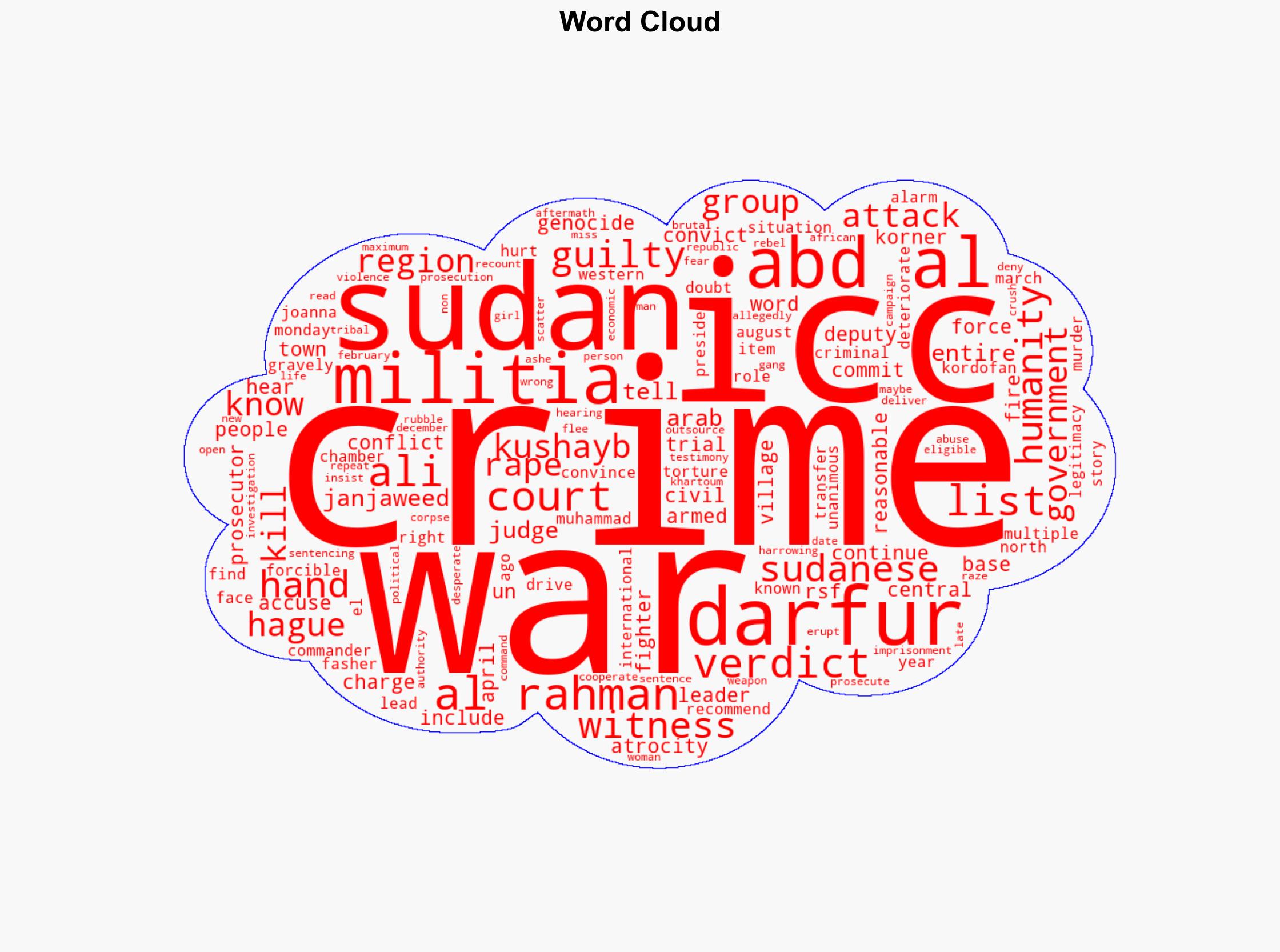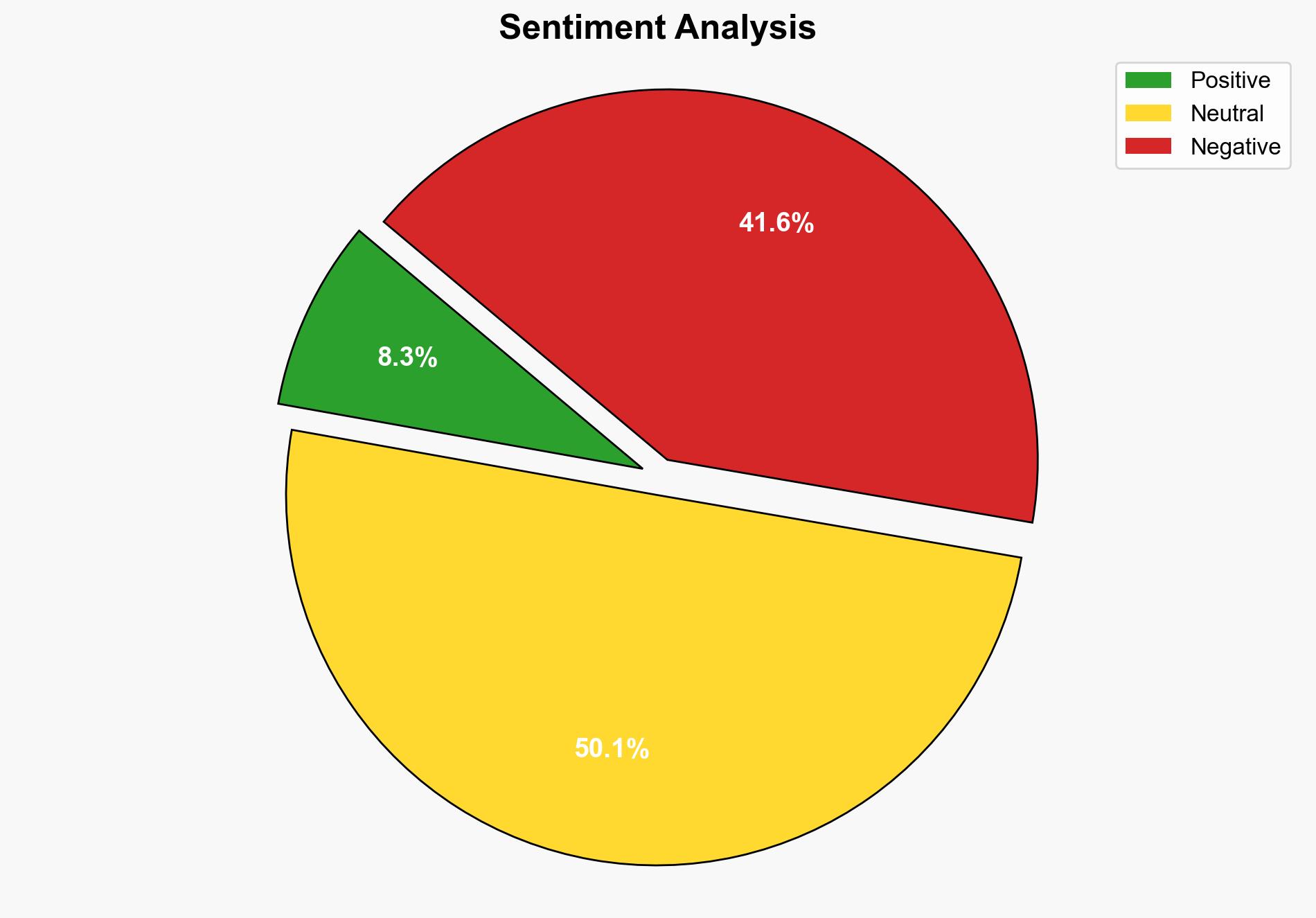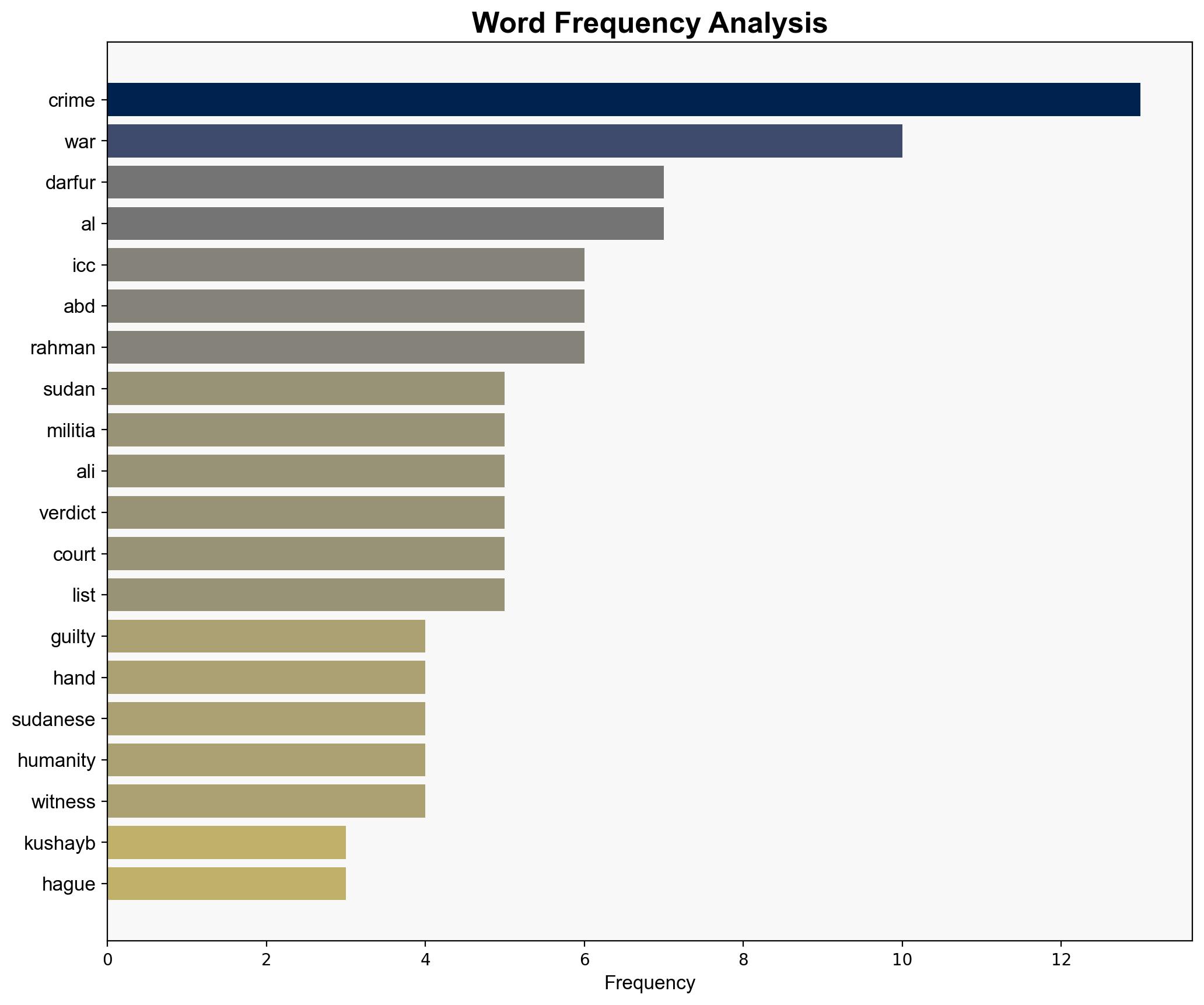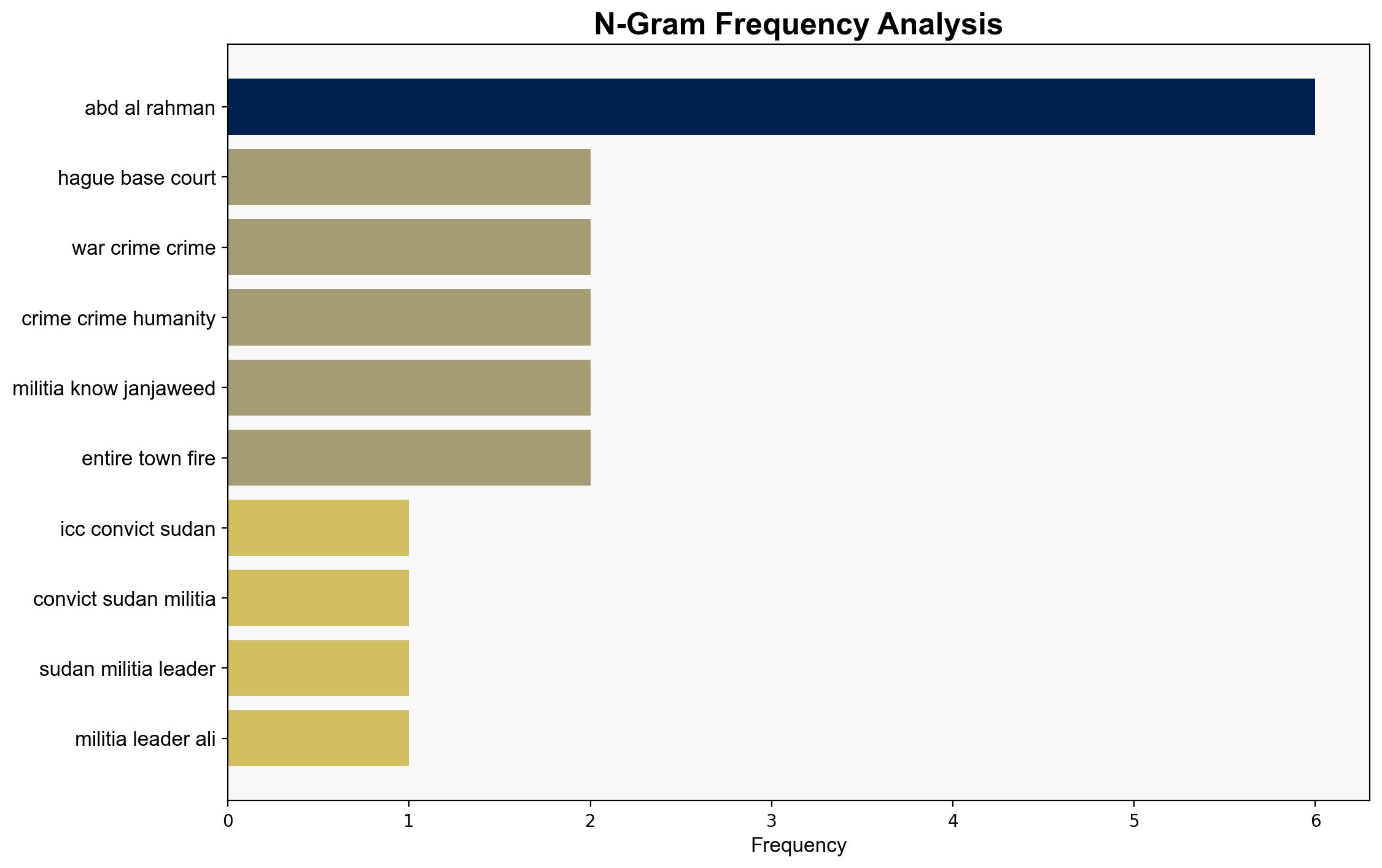ICC convicts ex-Janjaweed leader Ali Kushayb of war crimes in Darfur – Al Jazeera English
Published on: 2025-10-06
Intelligence Report: ICC convicts ex-Janjaweed leader Ali Kushayb of war crimes in Darfur – Al Jazeera English
1. BLUF (Bottom Line Up Front)
The International Criminal Court’s conviction of Ali Kushayb for war crimes in Darfur is a significant legal milestone, reinforcing international accountability mechanisms. The most supported hypothesis suggests that this conviction may deter future war crimes in the region, although ongoing violence in Sudan presents a complex challenge. Confidence level: Moderate. Recommended action: Strengthen international support for ICC processes and enhance monitoring of Sudan’s current conflict dynamics.
2. Competing Hypotheses
Hypothesis 1: The conviction of Ali Kushayb will deter future war crimes in Sudan by reinforcing the consequences of international legal accountability.
Hypothesis 2: The conviction will have minimal impact on deterring future war crimes due to ongoing instability and lack of enforcement capacity in Sudan.
Using Analysis of Competing Hypotheses (ACH 2.0), Hypothesis 1 is better supported by the ICC’s ability to prosecute high-profile cases, which may serve as a warning to other potential perpetrators. However, Hypothesis 2 is supported by the current unstable political environment in Sudan, which may overshadow the deterrent effect.
3. Key Assumptions and Red Flags
Assumptions include the belief that international legal actions influence local actors’ behavior and that the ICC’s actions are perceived as legitimate by Sudanese factions. A red flag is the ongoing violence in Sudan, which may indicate that local actors do not perceive the ICC’s actions as a credible threat. Additionally, the assumption that the Sudanese government will continue to cooperate with ICC investigations could be overly optimistic.
4. Implications and Strategic Risks
The conviction may embolden international legal frameworks, but the risk of continued violence in Sudan remains high. The potential for escalating conflict could destabilize the region further, impacting humanitarian efforts and regional security. There is also a risk that the conviction could be used by various factions to justify further violence or political maneuvering.
5. Recommendations and Outlook
- Enhance support for ICC efforts through diplomatic channels to reinforce the legitimacy of international legal actions.
- Increase monitoring and reporting on the ground in Sudan to assess the impact of the conviction on local dynamics.
- Scenario-based projections:
- Best Case: The conviction leads to a reduction in war crimes and increased cooperation with international bodies.
- Worst Case: The conviction exacerbates tensions, leading to increased violence and instability.
- Most Likely: Limited immediate impact on the ground, with potential long-term benefits for international legal norms.
6. Key Individuals and Entities
Ali Kushayb, Joanna Korner, Omar al-Bashir.
7. Thematic Tags
national security threats, international law, human rights, regional stability





